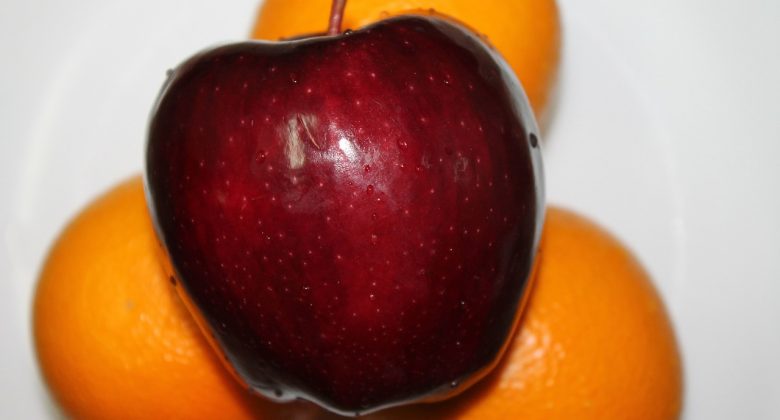“Comparison is the thief of joy”—Theodore Roosevelt.
You know the saying “that’s like comparing apples to oranges”? When I was younger, it would always baffle me because I couldn’t understand why you would need to compare such similar objects. But as a culture, that’s what we like to do…compare identical things and circumstances and then participate in an exercise in identifying as many differences as you can.
The problem is that when we do this with ourselves and with people in our life, then we start attaching value or worth to those differences. Suddenly the apple is better than the orange, or the orange is more vibrant than the apple. We must determine the hierarchy of differences and assume the most valued object.
Brene’ Brown talks about this phenomenon in her book The Gifts of Imperfection. She refers to this idea of robbing ourselves from joy the second we start comparing to another person’s circumstances. We get so caught up in this idea of who has what and who did what that we minimize, and sometimes even negate value to everything we have ever known.
The skill is not about training your brain to stop comparing. After all, some comparisons can be incredibly useful and lead to great insights. The skill is increasing your awareness of how those comparison’s impact your overall sense of well-being. Here are examples of defeating comparison statements:
- “I could do X if only I had Y like my friend so and so.”
- “Oh, I’m having a bad day, but it’s nothing like what you’re going through…..”
- “Yes, I’ve lost 10 pounds, but I still need to lose 5 more.”
- “If I was making that much money, life would be so much better.”
- “Things are not going so well, but I know they can always be worse.”
In each of the examples the actual situation is discounted through the act of comparison. It’s a vehicle to find ways to account for something that is lacking or a desire for change without accountability. It’s also a method to devalue something painful or uncomfortable. They allow a rationale to escape the full experience of whatever is happening at that moment.
If we begin increasing our awareness of how often we get lost in this act of comparison then eventually it will lead to us to recognizing that we are enough exactly as we are at this moment. There is still room to improve upon something or create space for change, but first embrace acceptance for the being that you are in this very moment.
Hold this thought….”You have everything you need.” This isn’t some profound discovery. It has always been true. Sure, go ahead, argue the fact. I invite you to reflect on the purpose of trying to disprove it first. I expect some people would go to the nth degree of literal here and say, “Wait, you need food…you need water, shelter..and so on.” I will save the trouble and whole heartedly agree, and I will gently follow-up with the statement that the spirit of this concept is not to cause some great controversy. It is to invite you to think about the purpose of comparison. Is it to motivate you to do something greater with your life? It is to inspire you to be better? Or is it simply to give a louder voice to an inner critic that is often questioning your own value? Because if we start comparing ourselves and highlighting some differences that lend to an illusion of value and worth; we become separate from others. And when we spend more of our life in a state of being separate…we spend more time feeling disconnected, lonely, and ultimately less valued.
Here is a practice in the spirit of unity and well-being: the next time you hear or experience a remarkable accomplishment, stroke of luck, or encounter a challenge or barrier to something; instead of going to that place of comparison simply experience the feeling that arises and emotions that follow and detach from the impulse to immediately file that away as better/worse/luckier/scarier/or any other ‘er’ word for your own life. When we can be completely present in our lives without needing a comparison for ourselves or another person, it becomes a true way of honoring each other and maintain a connection without the expense of someone’s worth, especially our own.
It’s not about agreeing that an apple and an orange are different or even how they are similar…it’s about appreciating the apple just as it is and the orange for everything it has to offer. When we can appreciate things and ourselves exactly as we are, something beautiful happens…we begin to feel more connected to others and ultimately more loved and valued.
If you’re going through a tough time, experiencing grievances, or simply having a bad day, own it. If you’re doing well and enjoying success, own that. If someone else succeeds, enjoy their happiness with them. If they fail, support them. Be accountable for your own situation without having to add some sort of disclaimer as to how it could be better or it could be worse. Realize that everyone is on their own journey with their own obstacles, worries, and triumphs. We are human. We are all beautiful and complex. And most of all, we are perfectly imperfect.

